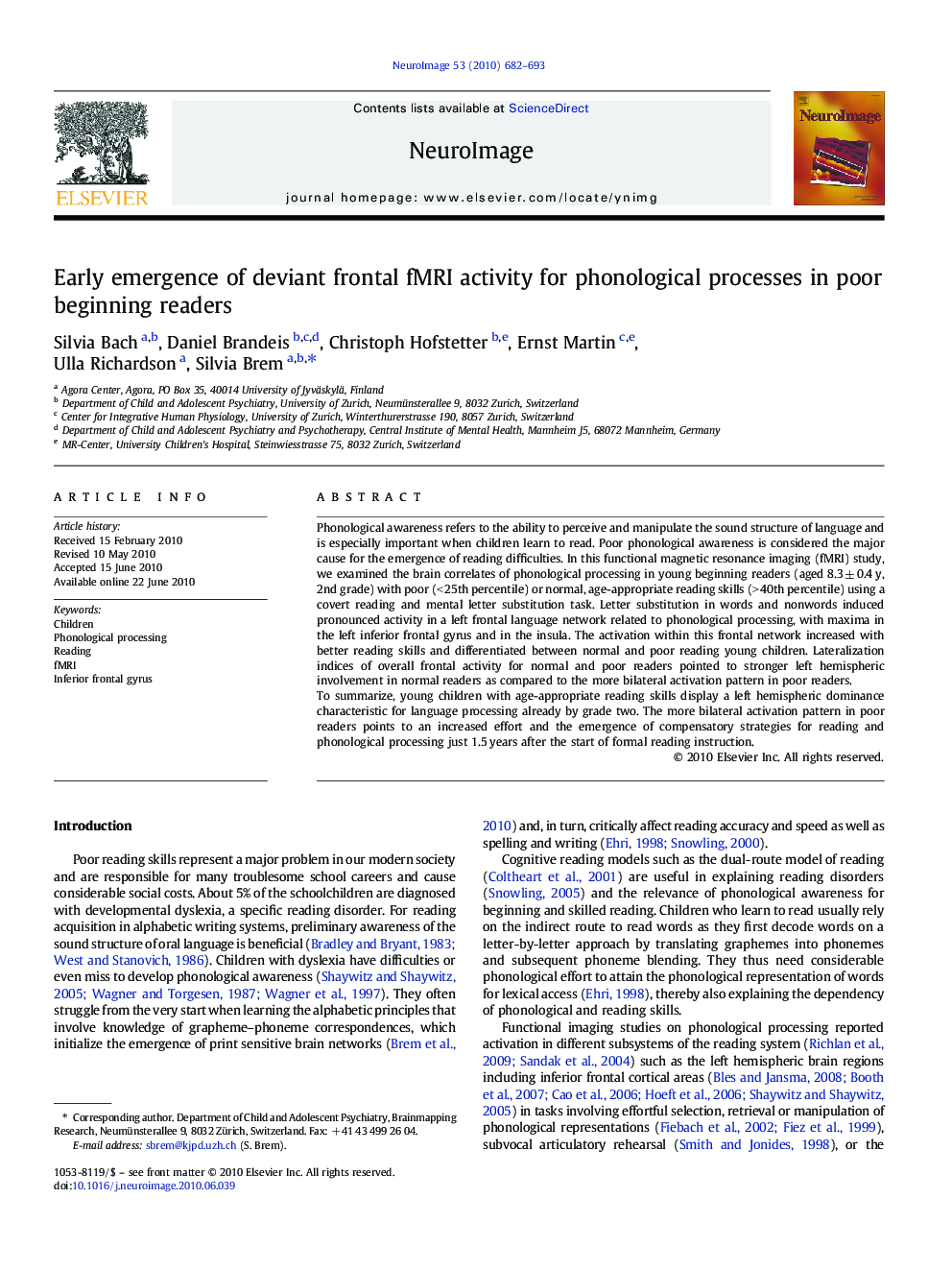| Article ID | Journal | Published Year | Pages | File Type |
|---|---|---|---|---|
| 3072285 | NeuroImage | 2010 | 12 Pages |
Phonological awareness refers to the ability to perceive and manipulate the sound structure of language and is especially important when children learn to read. Poor phonological awareness is considered the major cause for the emergence of reading difficulties. In this functional magnetic resonance imaging (fMRI) study, we examined the brain correlates of phonological processing in young beginning readers (aged 8.3 ± 0.4 y, 2nd grade) with poor (< 25th percentile) or normal, age-appropriate reading skills (> 40th percentile) using a covert reading and mental letter substitution task. Letter substitution in words and nonwords induced pronounced activity in a left frontal language network related to phonological processing, with maxima in the left inferior frontal gyrus and in the insula. The activation within this frontal network increased with better reading skills and differentiated between normal and poor reading young children. Lateralization indices of overall frontal activity for normal and poor readers pointed to stronger left hemispheric involvement in normal readers as compared to the more bilateral activation pattern in poor readers.To summarize, young children with age-appropriate reading skills display a left hemispheric dominance characteristic for language processing already by grade two. The more bilateral activation pattern in poor readers points to an increased effort and the emergence of compensatory strategies for reading and phonological processing just 1.5 years after the start of formal reading instruction.
Research Highlights►Phonological processes induced pronounced activity in a left frontal language network. ►Stronger left hemispheric dominance in normal than poor beginning readers. ►Enhanced effort and emerging compensation shown as bilateral activity in poor readers.
